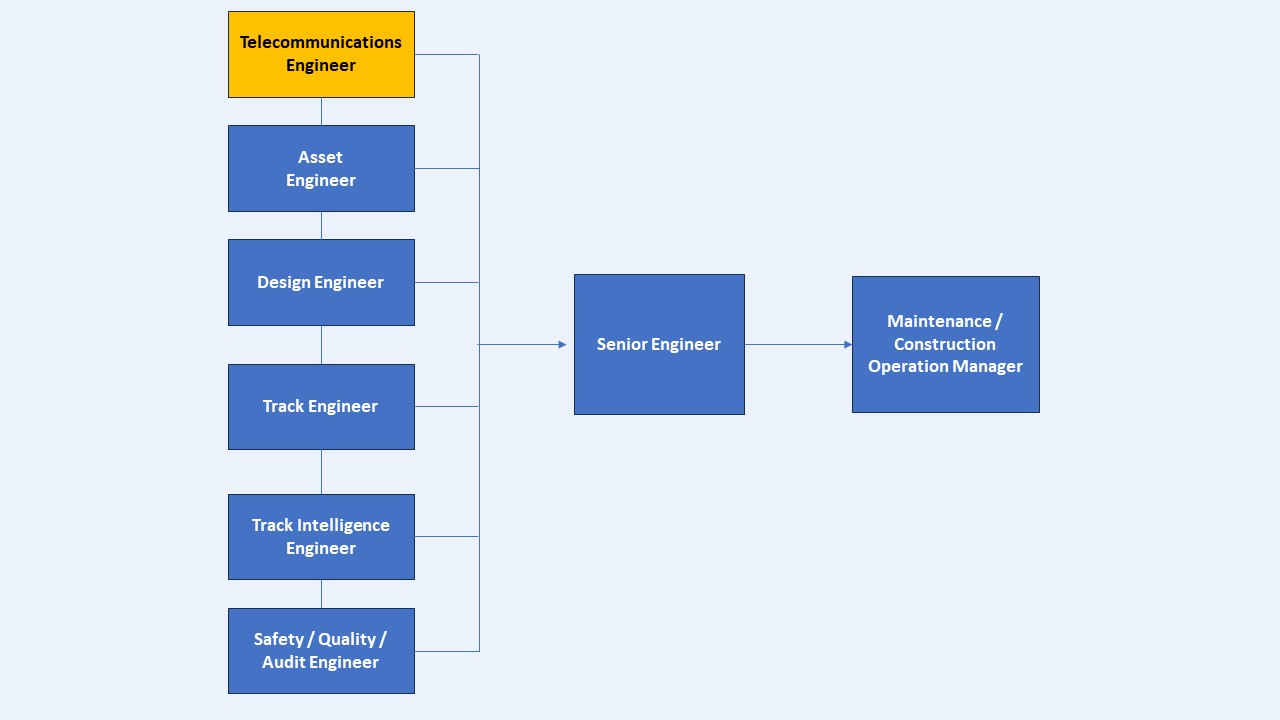
The role
Tasks include:
• preparing conceptual design and reports
• assisting with project planning and new project bids
• reviewing and monitoring construction
• overseeing maintenance plans and operational studies
• liaising with vendors supplying assets and products.

Skills required to be a Telecommunications Engineer
- A systematic approach to problem solving
- Attention to detail
- Ability to assess and plan
- Risk management
- Asset management
Previous experience
Telecommunications Engineers usually come from a career as an engineer or electrician. They may have previous experience in the:
- construction, defence or resources sectors
- IT sector
- electrical supply industry.
Minimum requirements
The minimum qualification for the role is usually a Bachelor or Masters of Engineering (Telecommunications, Electronic, Electrical, Computer Systems or similar).
However, it may be possible to become a Telecommunications Engineer with a Certificate IV, diploma or advanced diploma (in telecommunications, networks, electrical, electronic or similar) and relevant industry experience.
Requirements vary between systems, talk to your rail infrastructure manager or rail operator for specific information relating to their workplace.
What a Telecommunication Engineer's career progression can look like

Telecommunications Engineers may look to advance their career through roles as a senior engineer, or construction/operations manager.
What do I do next?
To find out more about how to become a Telecommunications Engineer:
- check out the Systems Engineer page on the Work in Rail website
- talk to your careers adviser
- Contact your local university or TAFE to find out what engineering courses are available
- if you already work in rail, talk to your employer
Meet the people

Meet Christine Konings, a Telecommunications Engineer with the South Australia Public Transport Authority
Christine is Manager of Passenger Information (ICT). Her role involves integrating old and new communications systems, using advanced technology and AI to develop a single automated system.
Read more about her career here.
